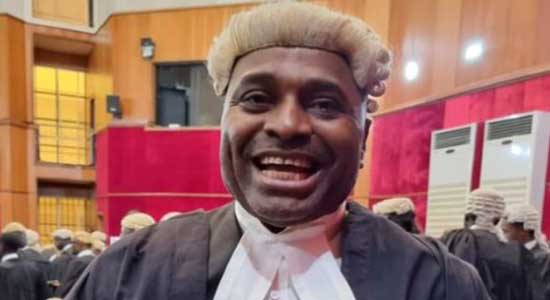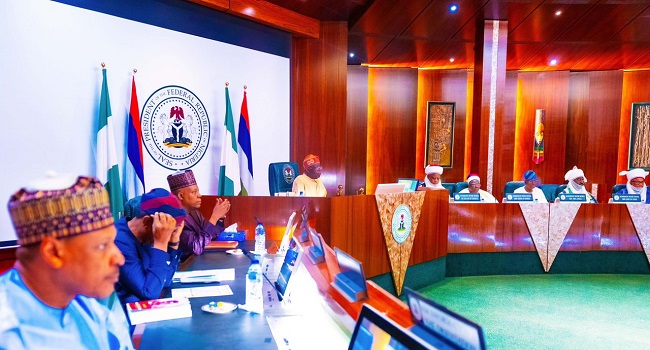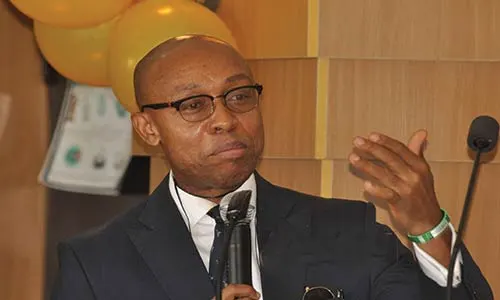Off-Cycle Elections And The Decisions Of Court

By Kenneth Okonkwo
Off-cycle elections are those elections that are held in-between general elections. They commenced in the Fourth Republic after the African political enigma, Peter Obi, contested and won at the Supreme Court the untimely termination of his Anambra State Governorship tenure by the Independent National Electoral Commission (INEC) which erroneously conducted gubernatorial election in Anambra State in 2007 before Peter Obi completed his four year tenure as stipulated in the 1999 Constitution. The apex court held that his tenure must commence from the day he was sworn in and end only four years after. Since his victory, more than 7 other states have joined Anambra State in the off-cycle elections. They include Imo, Bayelsa, Edo, Kogi, Ondo, Osun, Ekiti etc.
Historically, every regime has evolved some popular aphorisms in elections that defines the temperament of such regime. Obasanjo gave us do or die politics. Yar’Adua gave us “the election that brought me to power is flawed”. Goodluck Jonathan gave us card reader. Buhari gave us “whoever that is caught snatching ballot boxes should be shot”. Tinubu introduced the issue of placeholder to fill up the position of the vice presidential candidate until a new one is appointed to fill the position. The ruling party, the All Progressives Congress (APC), in collaboration with INEC led by Prof Yakubu Mahmood introduced the now monstrously popular slogan “Go to court”. Obasanjo’s do or die politics led to the 2007 election which the honest benefactor of the election, President Yar’Adua admitted that it was flawed. This honest admission rekindled the hope in Nigerians that electoral reforms were underway. Yar’Adua didn’t dissapoint. He set up the Mohammed Uwais committee on electoral reforms which made far reaching recommendations for electoral reforms.
Unfortunately, Yar’Adua died and most of the reforms are still not implemented till date. His successor, President Goodluck Jonathan, inherited the sincerity for electoral reforms from his predecessor. The major innovation of electoral reform that affected positively the improvements in our elections is the introduction of the card reader. This device marked the first introduction of the use of long overdue technology in our elections. This device was initially dedicated to be used for accreditation only, and it sent a message that it will tame the issue of over voting which characterised our elections and aided massive rigging through the use of unauthentic manual register.
The card reader was fought and defeated by known godfathers in Lagos and Rivers State elections who succeeded in making the courts to rule that the use of card reader is not recognised by our laws. They convinced the courts that accreditation must still be based on the manual register, not the card reader, as the card reader was not yet recognised by the Electoral Act (EA); that it was written in the Regulations and Guidelines for the Conduct of Elections by INEC was immaterial. Having struck down the efficacy of the card reader in our electoral process, in the Ambode and Nyesom Wike cases, Nigerian people and the Legislature rose up to the challenge and ensured that the card reader was recognised in Section 47 of the Electoral Act (EA), to the extent that no election can take place without the card reader. Hear the Act in Section 47(3), “Where a smart card reader or any other technological device deployed for accreditation of voters fails to function in any unit and a fresh card reader or technological device is not deployed, the election in that unit shall be cancelled and another election shall be scheduled within 24 hours …”
It’s important to note that in 2015, during the presidential election between President Goodluck Jonathan of the People’s Democratic Party (PDP) and President Buhari of the APC, even before the card reader was legalised in the EA, that the then opposition political party, APC, insisted that “no card reader, no election”. Prof Jega, who was the Chairman of INEC then, deployed the card reader and conducted the election that enabled the opposition party to make history by winning an incumbent political party. The PDP’s dream of governing Nigeria for at least 60 years was cut short for 16 years due to an election fairly organised in accordance with the law and determination of INEC to do the right thing. President Jonathan didn’t bother going to court. He simply called his opponent and congratulated him over his victory. This would be the one and only time that a presidential election wasn’t decided by the court since the inception of this fourth republic. It was a victory for democracy and the card reader was at the centre of it. This drove Nigerians to legitimise the use of card reader and the confidence of the people in our elections and democracy grew astronomically. The slogan then was that every regime must serve the people or be voted out.
INEC seemed on top of the game with the appointment of Prof Yakubu, who succeeded Prof Jega. Before the 2023 general elections, INEC organised off-cycle gubernatorial elections in Anambra, Edo, Ondo and Osun States. These elections were conducted in line with the law using the card reader and uploading the scanned results of the polling units results on the INEC Result Viewing Portal (IREV Portal) in real time for the world to see. The elections were free, fair, credible and verifiable. It destroyed the influence of godfatherism in Nigerian politics and such slogans as “Edo no bi Lagos” filled the air to tell the world that power had returned to the people of Nigeria. After the Osun State election which saw a disco dancer defeat an incumbent Governor, through the instrumentality of the card reader, that has come to be christened BVAS and recognised by law, the political godfathers whose dynasty and hegemony were threatened by the BVAS vowed that the BVAS must be destroyed before it destroys them and their corrupt political influence. INEC did not lose sight that they have fully secured the confidence of the people in our elections and that the godfathers want BVAS taken away. This deal will certainly be lucrative if properly negotiated in the general elections.
They sold out for whatever price known to them. On the election day, Presiding Officers told the world that they were instructed not to transfer the presidential election results electronically to the collation system. INEC went further to declare the winner of the presidential election in the dead of the night without the use of the BVAS generated information to verify the manually generated results and this was validated by the court which held that INEC is not under any duty to obey its own rules. It was on this premise that we entered the next off-cycle elections in Imo, Bayelsa and Kogi gubernatorial elections.
The Imo, Kogi, and Bayelsa off-cycle elections introduced the most damning maxim in our electoral lexicon. The concept of “Pre-filled polling units results”. This system involves the compromised INEC giving the ruling party, or any favoured party, the polling units results before the election day, which they will fill with any results they want and submit to INEC to electronically upload, using the BVAS, in election day. The polling units agents of the victimised parties were forced out of all the polling units by thugs of the favoured parties where these illicit uploading of fake results were done. In Imo, the incumbent Governor won in the whole local governments with more than 540,000 votes, despite publicised apathy of the people for the election, almost double of what Peter Obi, the popular presidential candidate in that area used to win in that area for which APC were touting that the result wasn’t real. Same went for Kogi, where more than 97% of all registered voters in Okene voted for the ruling party, notwithstanding that the number of accredited voters was not up to twenty percent of the total registered voters. The results were duly filled before hand and shamelessly uploaded on the IREV Portal showing absolute connivance with the Electoral body. Initially, INEC admitted that their result sheets leaked and promised to investigate. They, as usual, moved on to declare a winner in spite of their admission of their electoral perfidy. The voodoo results were declared to the embarrassment of the world and the opponents were asked as usual to go to court.
It’s revealing that some candidates are already dragging their feet on the issue of the courts indicating a total lack of faith in the system, because when they go to court, the court will tell them that INEC has the right to do whatever they like; that they are the ones that must produce all the manual results they are complaining of, polling unit by polling unit, within 21 days of the declaration of the results; that any Irev portal results they present cannot be admitted as a reflection of what happened at the polling units even if the Irev portal results are the certified true copies (ctc) given by INEC to the petitioners; that presenting INEC polling units manual results is not enough, they must get a witness who was present in the polling unit to testify about what happened in the polling unit; that the witness statements on oath of these witnesses must be filed in court within 21 days along with the petition.
The only thing INEC will do to frustrate the Petitioners will simply be to hide themselves and refuse to give the needed ctc of the manual polling units results to the Petitioners for 21 days even with an order of court, and refuse to testify to the truth of what happened at the polling units, coupled with the fact that the polling unit agents of the Petitioners were forcefully thrown out of the polling units during the election by their thugs, the petition has become practically dead even before commencement of the petition, despite the obvious electoral heist on the Petitioners. This is really reaching a tipping point and edging ever closer to the precipice that we are sure to trip over if there’s no divine intervention. May God save Nigeria.



